Green waste bin charges scandal
 Lee Burkhill: Award Winning Designer & BBC 1's Garden Rescue Presenters Official Blog
Lee Burkhill: Award Winning Designer & BBC 1's Garden Rescue Presenters Official Blog

Councils have faced significant budget cuts in the last few years, mainly as a knock-on effect of quantitative after the recession brought on by the banking and financial sector crisis. I'm not going to voice my opinions on that sorry state of affairs, on whether it's true that the establishment has always propped itself up in times of trouble, fraud or malpractice.
However, there is a phrase that manure flows downhill and the recent green waste bin charges are the latest in a line of charges. Charges which are now pushing the deficit brought on by such school ground political antics onto the public. It's not just gardeners that are getting hit by the £25-£65 per year tax, but anyone who keeps any green space or horticulture at their abode.
Councils claim that due to tax cuts the green waste bin charge is necessary. To stop the increase of waste to landfill, to help provide a more consistent service and other arguments. Joy Blizzard from the Local Authority Recycling Advisory Committee (LARAC) has argued that if people have bigger gardens they will need to contribute more for the recycling of the materials and that those without gardens are subsidising those without.
I'm really struggling to accommodate this view that having a garden, big or otherwise, is somehow a drawback to recycling or a burden to councils seemingly haphazardly managed budgets? When green waste is composted and reused why does landfill even come into the argument? So I've done my own digging, pardon the pun, into the benefits of gardening.
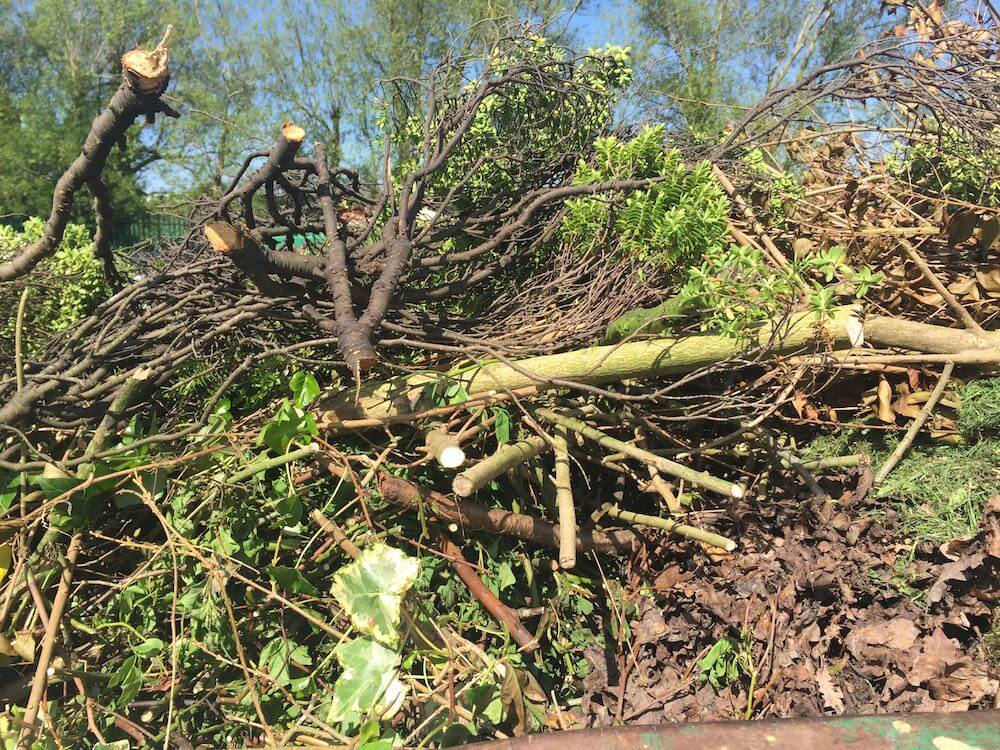
To counter the argument that non-gardeners are subsidising our gardens then maybe we should assess the country wide benefits of having a garden. Horticulturalists, alongside the RHS, have long established that green space provides multiple benefits.
So the argument falls short that we're being subsidised. The work of gardeners benefits us all exponentially.
You'll be hard-pressed to find anyone who hasn't been hit by increasing council taxes the past few years. Most people are aware that council tax covers waste removal amongst other things. Councils have been keen to encourage recycling, hence the army of bins that need to be accommodated somewhere within everyone's garden. Which become a nightmare for those with small gardens especially in garden design. I'll save that for another time. Using campaigns such as the one below to awkwardly make smile an acronym for recycling! Not so much anymore though as West Lancashire is the latest to hit out with the green bin tax.
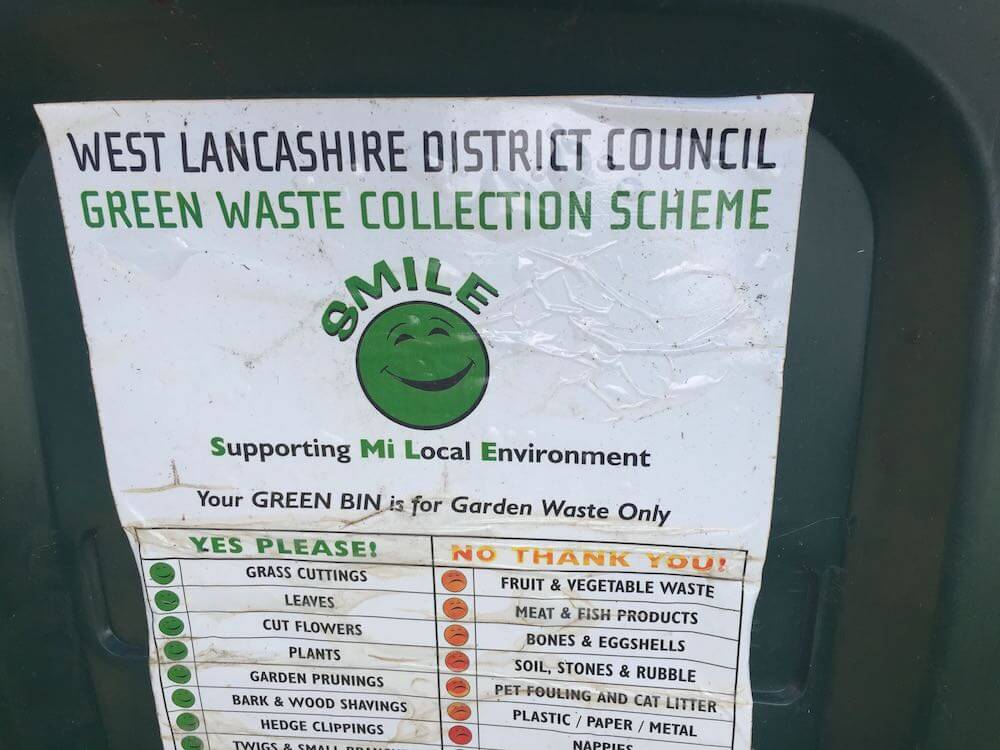
Now the country is recycling more and more it feels like the councils have seen an opportunity to capitalise on this. Trafford council now charge for green waste recycling and then offer to sell you back your composted waste, at a premium. Surely this is a case of having one's cakes and eating it? How very un Mancunian of them!
There is the argument that all people can fit a composter in their garden. Which I suppose I will partly concede. However, trying to compost all your green waste, food waste and organic matter is not an easy task in residential areas. Trying to get the correct mix of green waste and brown waste to balance out can feel like an art form at times. Getting the compost bin hot enough to break down all kitchen waste, pineapple peelings, for example, is a challenge for even the most proficient earth mother recycler! It's a skill that once mastered is easy, but I imagine millions of people just 'giving it a go' may struggle in the short term even with a Garden Ninja video guide to help!
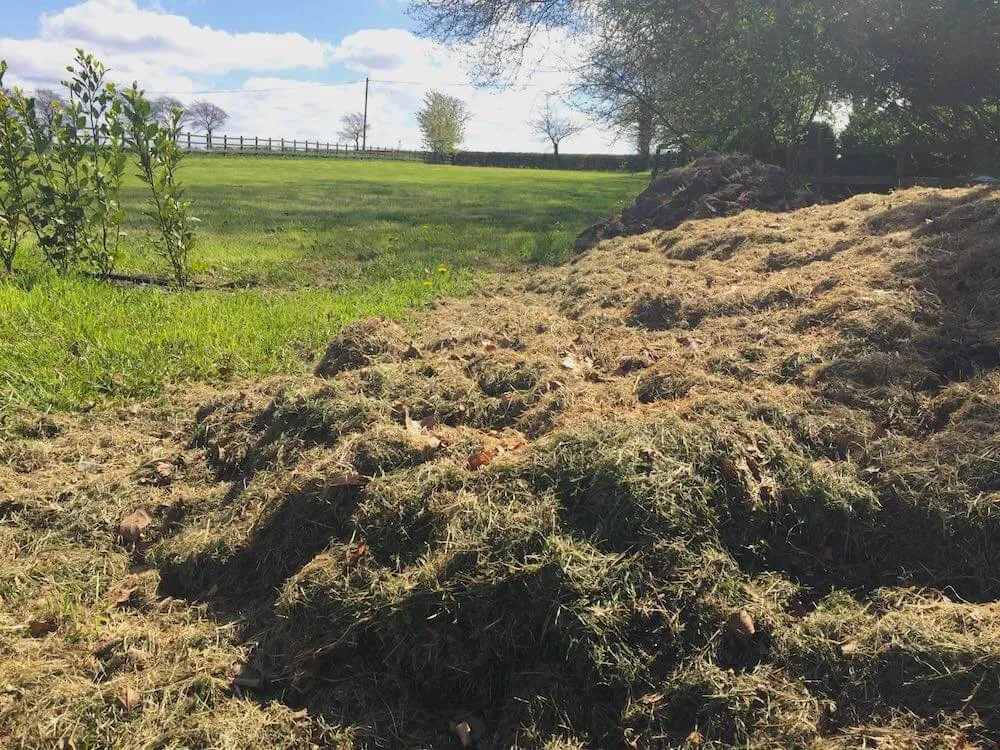
So whilst I support the increase in home composting it can't be seen as the answer to the tax as it's not sustainable long term. It's an aid, not a replacement.
There is a real risk that those on a low income will have to stop having their green bin emptied. Green waste will then be placed in the general waste bin, reducing recycling and increasing general landfill waste. What about the scenario where a neighbouring shrub sheds its leaves onto your garden? The council claim you can use a neighbours green bin to place them in. However, you can see the argument that could follow. A neighbour refuses for whatever reason to let a neighbour use their bin, maybe its full or prevents them from recycling all their waste.
What about council managed trees that drop their leaves on your front garden. Which then become slippy and wet, but because you don't have a green bin you're then stuck with the problem of having to dispose of them either in the general waste bin or taking them to the tip, worse still just leaving them there? Sorry for the pun again!
The risk with starting to charge for green waste collection is that there's the potential for other charges to come into force. Suddenly the can bin or paper bin warrants a new charge. All on top of your existing council tax. It feels like a slippery slope towards paying for individual services. Again, impacting the likelihood of people recycling and increasing the chances of the general waste reverting back to the 'all waste' category.
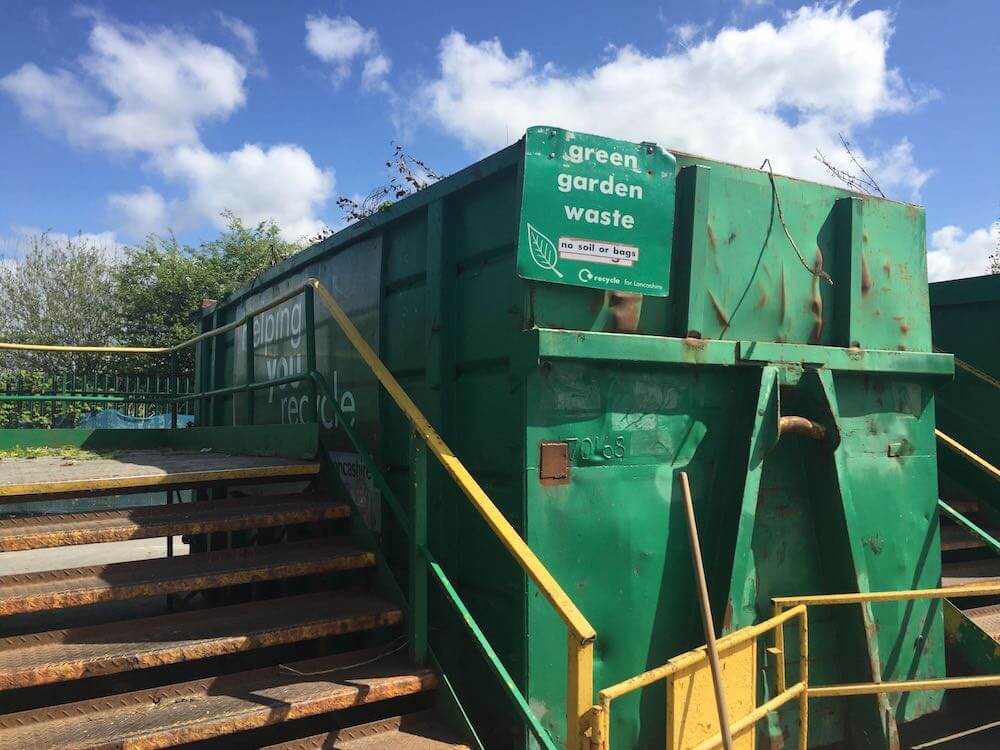
What's particularly frustrating with my council of West Lancashire, is that if they fail to collect the green bin, at their error, you are not entitled to any refund for the service. A service you are now paying twice for! Seems like they make use of a best endeavours clause but that is it. The scandal!
In a government study, it was shown that just over two-thirds (67 per cent) of fly-tips involved household waste, an increase of 6.5 percent from 2014/15. Showing an increase in fly-tipping. Fly-tipping is where someone dumps rubbish in a public place, that isn't a refuse collection area. Think laybys, paths and pavements. It's a deplorable practice, however, in the interests of fairness, there is an argument that increasing costs for recycling will lead to a further increase in fly-tipping for people that simply can't afford the tariff.
A more questionable scenario might be someone dumping grass clippings into a field or woodland thinking they will simply decompose. ie - How harmful can it be syndrome? It's still flytipping and wrong but you can see how small acts of 'no one will know' could lead to larger recycling problems. A hotly debated argument I know but one nether the less.
Ask any working gardener about wages and one common retort is that gardeners feel they are vastly underpaid for a highly skilled service. We are often bundled together with 'man with a van' or 'chap with a chainsaw' basic labourers. Often professional gardeners have sat their RHS exams, studied relentlessly of a vast subject matter, paid for said exams and worked long cold hours in all weathers to gather the experience needed. The RHS has been championing its 'Greening Grey' campaign but the green bin charge can only be seen as a prohibitive step against this.
So now there is a green bin charge there is a likelihood that these gardeners will now have to remove their own waste from customers houses and pay for disposal at waste disposal sites. This will lead to two things.
Given the passion of most professional gardeners, it seems highly unfair to pass this cost issue onto them. Given the already low wage of £7-10 per hour which people on Freeindex and Gumtree seem to think is fair for a gardener. How on earth you can expect to pay so little for such a high skill. Not to mention the purchase and maintenance of tools and insurances.
The arguments for increased green bin charges don't stack up. This is because they will impact the amount of positive recycling, penalise the poorer parts of society and punish those with a passion for keeping the UK green. The charges should already be covered by council taxes that we already pay. Focusing in on people with green space is the wrong way to raise additional revenue.
The careful pricing of green waste compost being sold back to the public could help bridge this gap, as could other beneficial uses of the waste. ie don't make the council compost cost £1 more than B&Q Trafford Council plus make ordering and delivery a nightmare!
As a garden design blogger, I believe talking about these issues, raising them with local counsellors is essential. Greening great Britain is vital to slow down the rise of commercialism, pollution and levels of anxiety across the UK. Having a tax on the clean byproducts of the green life is counterproductive.
When will these taxes on the environmentally sound-minded stop? Do you agree or disagree? Why not comment or share this post to get the discussion started!
Why not comment or share this post to get the discussion started?
You must be logged in to post a comment.


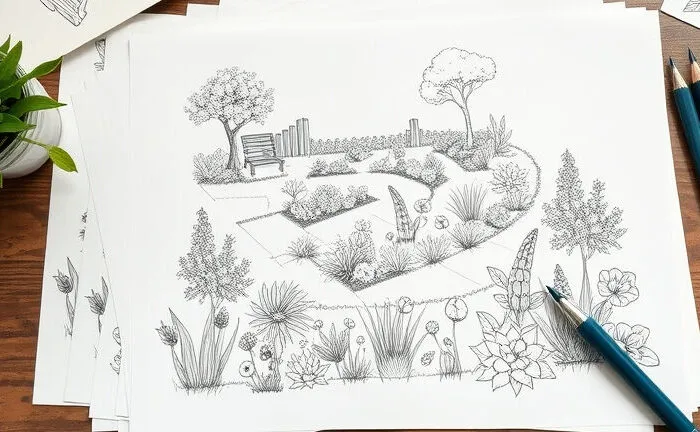
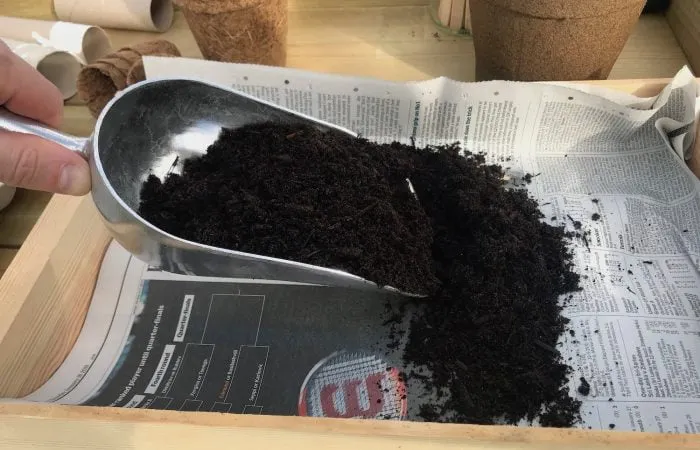

JOIN THE NINJAS

Be the first in line for new Guides, Discount codes and Offers
Excellent article that easily summarises all the rants I’ve been having for the last month..
It’s ridiculous!
Hi Sarah, Doesn’t it just! I can’t get my head around it. Feel free to share this article to help spread the word and get people talking! All the best Lee